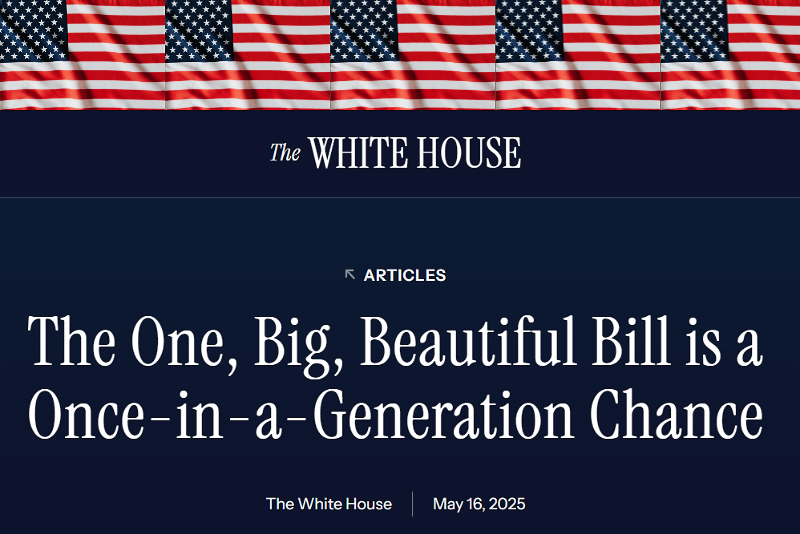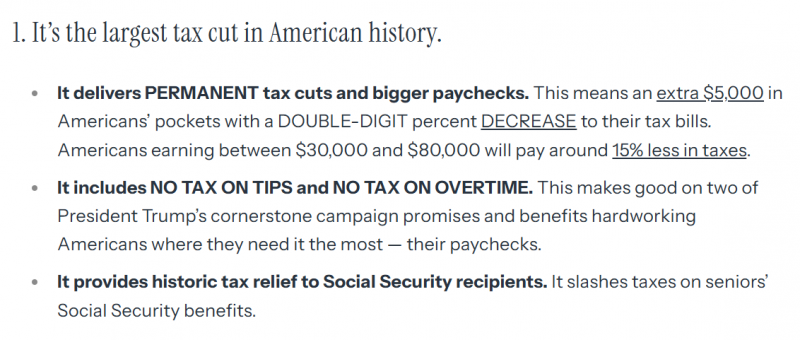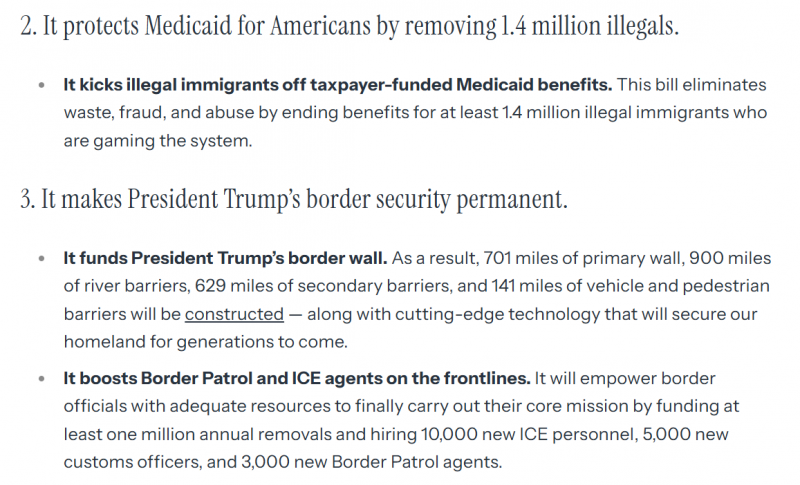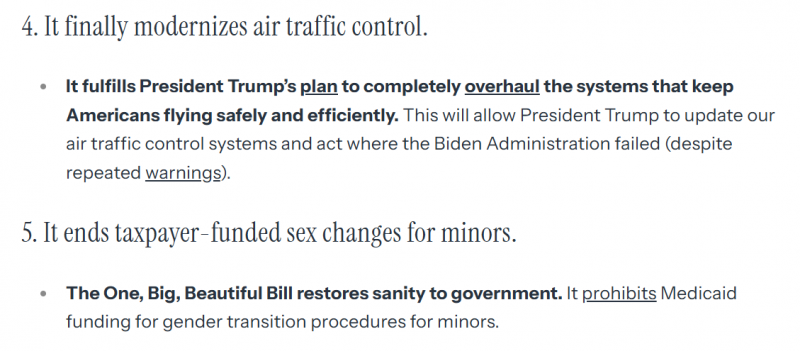
OAN Staff Brooke Mallory
12:52 PM – Friday, May 16, 2025
The House Budget Committee rejected President Donald Trump’s “One Big Beautiful Bill” (OBBB) on Friday after Speaker Mike Johnson (R-La.) and his leadership team were unsuccessful in securing the support of several key Republican dissenters.
This development represents a substantial setback for both Johnson and Trump, as the proposed legislation, which combines tax reductions with significant spending cuts, was intended to be passed by Memorial Day.
The committee voted 16–21 against advancing the bill. Republicans Chip Roy (R-Texas), Ralph Norman (R-S.C.), Andrew Clyde (R-Ga.), and Josh Brecheen (R-Okla.) joined all Democrat members of the panel in opposition.
Additionally, Rep. Lloyd Smucker (R-Pa.) altered his vote from “yes” to “no” after it became apparent that the measure lacked sufficient support — a strategic move intended to preserve the committee’s option to reconsider the legislation at a later date.
“Republicans MUST UNITE behind, “THE ONE, BIG BEAUTIFUL BILL!”, President Trump posted to his Truth Social account. “We don’t need “GRANDSTANDERS” in the Republican Party. STOP TALKING, AND GET IT DONE!,” he added.
Nonetheless, earlier in the week, Republicans had advanced a proposal to reduce federal spending by more than $230 billion over the next decade and implement significant reforms to the Supplemental Nutrition Assistance Program (SNAP), moving the measure out of the Agriculture Committee. The Agriculture panel approved the plan in a 29-25 vote, along party lines.
The measure, a central element of Trump’s bill, then proceeded to the House Budget Committee for a markup session.
In April, Congress had enacted the framework for the legislative package, delegating tasks to various committees and instructing the Agriculture panel to identify at least $230 billion in savings over a decade. Additionally, some Republican members of the Agriculture panel had estimated that the plan could reduce spending by as much as “$300 billion.”
The proposal mandates that the federal government impose penalties on states with high error rates in Supplemental Nutrition Assistance Program (SNAP) payments, utilizing data collected by federal agencies. According to the Food and Nutrition Service, in the 2023 fiscal year, the national average for state error rates was 11.68%, with 46 states recording error rates exceeding 6%.
Provisions of the Agriculture Committee Legislation
The proposed legislation introduces financial accountability measures for states with high error rates in SNAP payments:
- States with error rates between 6% and 8% would be required to contribute 15% of the program’s cost, a significant shift from the previous model in which the federal government fully funded it.
- States with error rates ranging from 8% to 10% would be responsible for 20% of the costs.
- States exceeding a 10% error rate would bear 25% of the program’s expenses.
The bill also creates an opportunity for Republicans to attach a $60 billion farm bill to the broader legislative package, including provisions for crop insurance, export trade promotion, and other agricultural priorities.
The Supplemental Nutrition Assistance Program, which provides food assistance to low-income individuals and families, had a federal budget of $112.8 billion in the 2023 fiscal year. An estimated 42 million Americans receive approximately $212 in monthly benefits through the program.
While moderate Republicans have expressed some “reservations” about the proposed changes to SNAP, two more contentious issues within the broader legislative package have emerged: concerns over “potential” Medicaid cuts and dissatisfaction with the insufficient increase in the state and local tax (SALT) deduction. However, Trump administration officials have repeatedly declared that no one’s Medicaid will “be cut” as long as:
1) They are not making fraudulent claims to the government.
2) They are not illegal aliens.
Republican leadership aimed to present the finalized bill to Trump by the Fourth of July.
Provisions of Trump’s “One Big, Beautiful Bill” (OBBB)
Tax Reforms: Permanent Extension of 2017 Tax Cuts: seeks to make the individual income tax cuts from the 2017 Tax Cuts and Jobs Act permanent, preventing a scheduled tax increase for many Americans.
New Tax Deductions: Introduces deductions for tips, overtime pay, car loan interest, and Social Security income for seniors earning under $75,000 annually.
MAGA Accounts: Establishes government-funded savings accounts for children born between 2024 and 2028, modeled after “baby bonds,” but without income restrictions.
- Spending Cuts and Social Program Changes
Work Requirements: Implementing mandatory work or community engagement activities for certain Medicaid recipients.
Eligibility Verification: Increasing the frequency and stringency of eligibility checks.
More SNAP Modifications: Raises the age limit for work requirements for able-bodied adults without dependents from 54 to 64 and tightens eligibility criteria.
- Immigration and Border Security
Increased Funding: Allocates $47 billion for border expansion and $25 billion for missile defense systems.
Medicaid Restrictions: Removes Medicaid eligibility for illegal aliens, aiming to reduce federal expenditures.
- Other GOP Provisions
AI Regulation Preemption: Imposes a 10-year federal preemption on state-level artificial intelligence laws.
Debt Ceiling Increase: Raises the federal debt ceiling by $4 trillion.



Stay informed! Receive breaking news blasts directly to your inbox for free. Subscribe here. https://www.oann.com/alerts
What do YOU think? Click here to jump to the comments!
Sponsored Content Below

